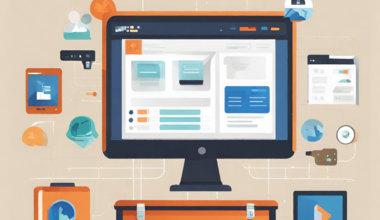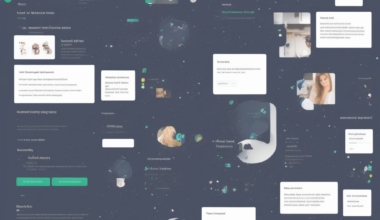Today, there is a big demand for full stack developers. These are people who can work on both the front end (what users see) and the back end (the server side) of websites and applications. If you want to become a full stack developer, you can choose between two main paths: full stack development bootcamps and traditional degree programs. In this blog post, we will look at the differences between these two options to help you decide which one is right for you.
What is Full Stack Development?
Before we compare the two options, let’s understand what full stack development means. A full stack developer knows how to build both the parts of a website or application that users interact with (front end) and the parts that run behind the scenes (back end).
Key skills for full stack developers include:
- Front-end technologies: HTML, CSS, JavaScript, and frameworks like React or Angular.
- Back-end technologies: Node.js, Python, Ruby, and databases like MySQL or MongoDB.
- Version control: Using Git to manage code changes.
- Deployment and DevOps: Understanding how to launch applications and manage servers.
What Are Bootcamps?
Full stack development bootcamps have become popular in recent years. These short, intense programs help students learn the skills needed to get a job in tech in just a few months, usually between 8 to 24 weeks.
Pros of Bootcamps
- Quick Learning: Bootcamps allow you to learn skills fast so you can start working soon.
- Hands-on Projects: Most bootcamps focus on real-world projects. This helps you build a portfolio to show future employers.
- Lower Cost: Bootcamps are usually less expensive than traditional degrees, making them a good option for many students.
- Job Support: Many bootcamps offer help with job searching, including resume writing and interview practice.
Cons of Bootcamps
- Less Deep Knowledge: Bootcamps teach practical skills but may not cover important theory, which is useful for long-term growth.
- Quality Varies: Because the bootcamp industry is unregulated, some programs are better than others. It’s important to choose a good one.
- Fast Pace: The quick pace can be overwhelming for some students, especially those who are new to programming.
What Are Traditional Degree Programs?
Traditional degree programs in computer science or software engineering usually take four years to complete. These programs offer a well-rounded education and cover many topics, including algorithms, data structures, and software design.
Pros of Traditional Degree Programs
- In-Depth Knowledge: Degree programs give a deep understanding of computer science, preparing students for complex problems.
- Recognized Credentials: A degree from an accredited school is often viewed favorably by employers, which can help when applying for jobs.
- Networking: Colleges often provide access to a network of alumni and industry contacts, which can lead to job opportunities.
- Extracurricular Activities: Many universities offer clubs, hackathons, and internships to help students gain experience.
Cons of Traditional Degree Programs
- Time Commitment: Earning a degree takes a lot of time, which may delay your entry into the job market.
- Higher Costs: Tuition for degree programs can be high, leading to potential student debt.
- Less Practical Focus: Some programs may focus more on theory than practical skills, which might leave students unprepared for the job market.
Choosing the Right Path for You
When deciding between a full stack development bootcamp and a traditional degree program, consider these factors:
- Career Goals: If you want to get into tech quickly, a bootcamp might be the right choice. If you want to aim for advanced roles, a degree may be better.
- Learning Style: Think about how you learn best. Bootcamps are fast-paced and focus on projects, while degree programs are more structured and allow for deeper exploration of concepts.
- Financial Situation: Look at your finances. If you can afford a degree, it might help you get better job opportunities. If you need a more affordable option, bootcamps are a good choice.
- Job Market Trends: Research the job market in your area. Some places prefer graduates from bootcamps, while others look for degree holders.
- Networking Opportunities: Consider how important networking is for you. Degree programs often offer more chances to connect with industry professionals, while bootcamps might help you meet employers directly.
Conclusion
Both full stack development bootcamps and traditional degree programs have their pros and cons. Your choice will depend on your personal goals, learning preferences, and financial situation.
If you want to start working quickly and learn practical skills, bootcamps can be a great option. However, if you are looking for a deep understanding of computer science and a recognized degree, a traditional program might be the way to go.
No matter which path you choose, remember that the tech industry is always changing. Continuous learning and skill development will be key to your success as a full stack developer. Take your time to explore your options, think about your goals, and pick the path that suits you best. With careful consideration, you can start a fulfilling career in full stack development and meet the needs of the ever-changing tech world.


